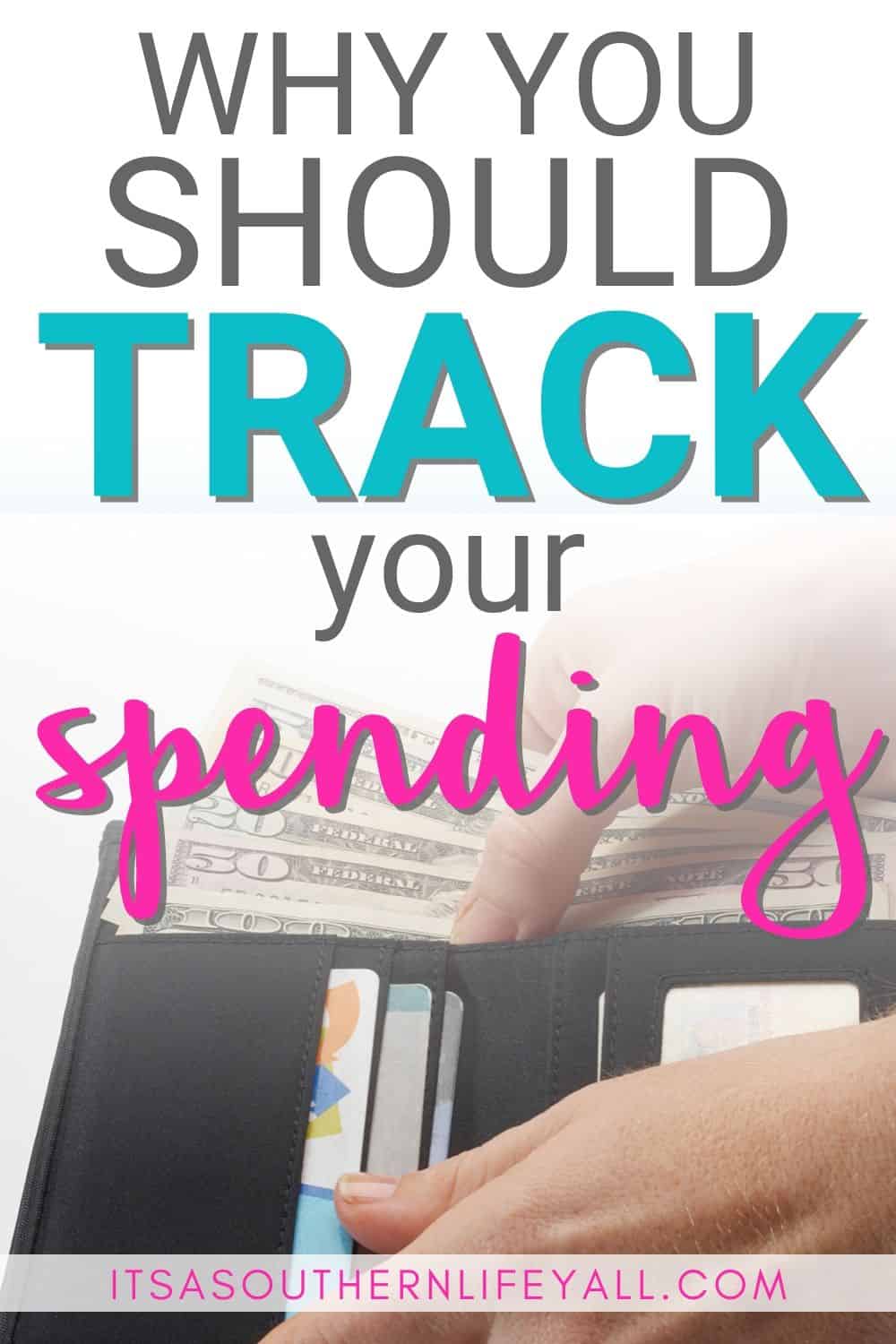Do you know where your money is going? No matter how hard you try, you can’t seem to get out of the paycheck to paycheck cycle. You make a decent living yet you still run out of money before the end of the month. Learning how and why you should track your spending can be what you need to help break this cycle.
You are clearly not alone if you can’t make ends meet. According to this article, almost 80% of workers live paycheck to paycheck with no end in sight.

(This post may contain affiliate links. What does that mean to you? Well, if you click on a product and make a purchase, I may receive some compensation at NO charge to you. If you want to read the boring stuff, my full disclosure can be found here.)
If you truly want to keep more money in your pocket or even as savings, it’s essential that you track your spending. Not knowing how much money is going out on a regular basis can truly hurt you and cause negative issues in your life.
Why Everyone Should Track Their Spending
The best way to go about this is to have a detailed budget that allows tracking of every penny spent. If the thought of a budget scares the life out of you, it doesn’t have to when you follow the proper steps.
At the very least, you should review your spending habits on a weekly basis to stay on top of things.
Know Where Your Money Is Going
It’s so easy to make impulse purchases these days, especially with the convenience of ATMs everywhere you turn and online shopping.
No matter how you spend, keeping track of where your money is going and how much you are spending matters. Tracking your spending will give you insights into whether you’re living within or well beyond your means.
RELATED POST: How to Save Money When You Have No Money
Gain Insight
You can learn a great deal by monitoring your spending. You’ll start to see patterns of where your money is going, days of the week where you spend the most and even spending habits you want to avoid.
You can then reconcile that information with your financial goals in order to determine if they match. You may discover you’re spending money in ways that don’t support where you truly want to be and that you’re being wasteful when you look at the big picture.
Improve Partner Relationships
We all are aware that money issues are a huge stressor in relationships. If you have a spouse or significant other, you can do a lot to improve your connection simply by being more aware of your spending.
Setting a budget and keeping track of your expenses allows you to be accountable even if you aren’t in a relationship.
Manage Impulse Buying
It’s so easy to see something you like or that appeals to your emotions and then drop the money to purchase it. Even small impulse buys add up.
Tracking your expenses can let you know just how much you’re spending on these last-minute purchases you don’t actually need. That awareness is likely to help you make better decisions in the future.
Monitor Potential Fraud
When you monitor your spending, you’ll regularly see the activity on your bank statements and credit card transactions. This will allow you to catch any suspicious activity sooner.
How To Track Your Spending
Tracking your spending is the only way to find out how much you’re actually spending.
Plopping down $20 here and there might now seem like much at the time, but when you add all of those small expenditures up you will see the bigger picture. Small spending can add up to a large amount of your spending downfall over the weeks and months.
To see where your money has been going, you will need to grab your bank statements, credit card statements, cash withdrawal slips, and receipts from the past few months.
Start by creating spending categories of where the bulk of your money goes. These categories should include things like groceries, eating out, entertainment, and so on.
Now go through your statements and receipts line by line and tally them up in the corresponding category.
Are you shocked by what you see? Are your spending habits keeping you living above your means?
Keep working at this and track your spending in real-time by writing down all of your purchases.
I like to start a new expense tracking sheet each month to keep an eye on my money management. This simple step helps me to keep myself in check by monitoring and choosing to control my extra spending.
What To Do After You Track Your Spending
Learning the truth about your spending can be very eyeopening. But once you have started this journey, there is no turning back.
You do have options. You can continue with your poor spending habits, never changing and never giving yourself the chance to get ahead financially. You will also have that nagging voice in the back of your mind telling you that you are overspending because once you have the proof, you can no longer hide from the truth.
Or you can do the adulting thing and decided to make a change with your spending habits once and for all. You can use all of this information you have gathered and decide to create a budget that aligns with your income and goals.
If you are ready to take the grand leap into financial freedom, this post can help you with step-by-step instructions on how to start a budget.
Tracking your spending is a mere step in your money management journey. Your next steps are actually what matters the most.
But achieving your financial goals needs to start somewhere and expense tracking is moving in the right direction.


Leave a Reply